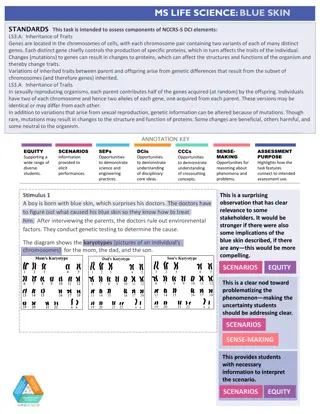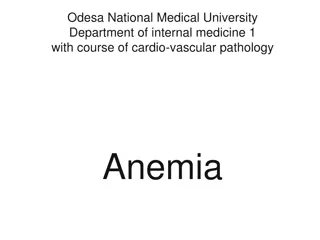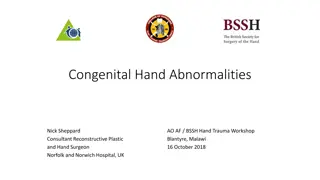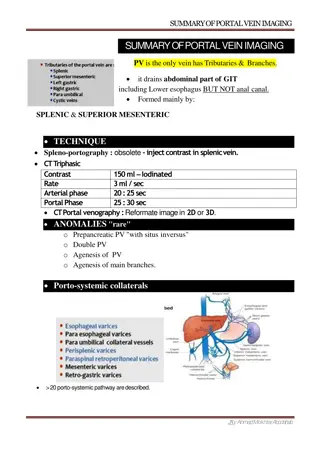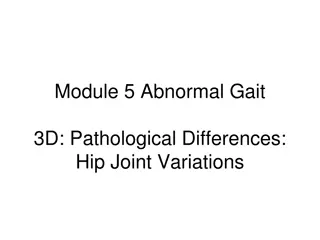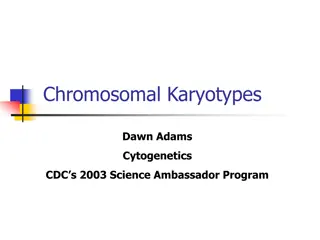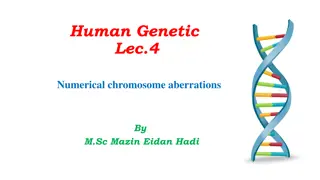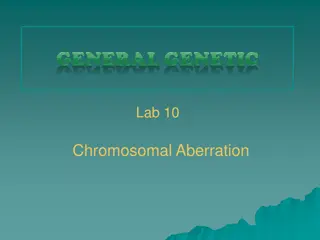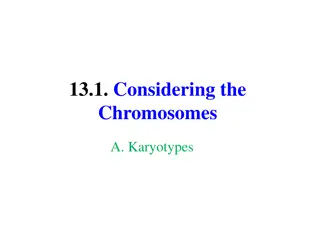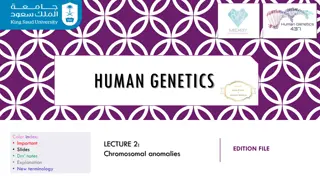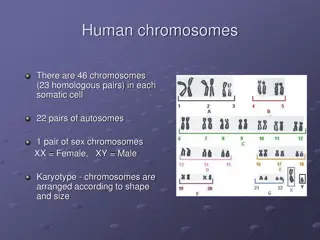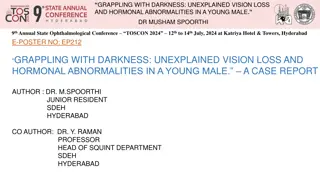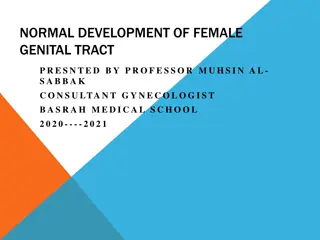Understanding Karyotypes and Chromosomal Abnormalities
Karyotypes are photographic inventories of an individual's chromosomes, helping determine genetic sex and detect abnormalities. Common chromosomal conditions like Down syndrome, Klinefelter's syndrome, and Turner's syndrome are discussed, along with the impact of abnormal sex chromosomes on characteristics and survival.
Download Presentation

Please find below an Image/Link to download the presentation.
The content on the website is provided AS IS for your information and personal use only. It may not be sold, licensed, or shared on other websites without obtaining consent from the author. Download presentation by click this link. If you encounter any issues during the download, it is possible that the publisher has removed the file from their server.
E N D
Presentation Transcript
A karyotype is a photographic inventory of an individual s chromosomes A. Blood samples are cultured for several days under conditions that promote cell division of white blood cells (Figure 8.19). B. The culture is treated with a chemical that stops cell division at metaphase. C. White blood cells are separated, stained, and squashed in an effort to spread out the chromosomes. D. The individual chromosomes in a photograph are cut out and rearranged by number. The ordered display of chromosomes is called a karyotype E. From this the genetic sex of an individual can be determined and abnormalities in chromosomal structure and number can be detected.
An extra copy of chromosome 21 causes Down syndrome. A. In most cases, human offspring that develop from zygotes with an incorrect number of chromosomes abort spontaneously. B. Trisomy 21 is the most common chromosome- number abnormality, with 3 copies of chromosome 21, occurring in about 1 out of 700 births C. Down syndrome (common name for trisomy 21) includes a wide variety of physical, mental, and disease-susceptibility features D. The incidence of Down syndrome increases with the age of the mother
Abnormal numbers of sex chromosomes do not usually affect survival. A. Abnormalities in sex chromosome number result in individuals with a variety of different characteristics, some more seriously affecting fertility or intelligence than others B. The greater the number of X chromosomes (beyond 2), the more likely is (and the greater the severity of) mental retardation. C. These sex chromosome abnormalities illustrate the crucial role of the Y chromosome in determining a person s sex. A single Y is enough to produce maleness, even in combination with a number of Xs (Klinefelter s syndrome), whereas the lack of a Y (Turner s syndrome) results in femaleness


